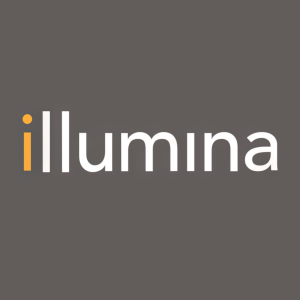Illumina and Harvard Pilgrim Health Care Real-World Evidence Study Demonstrates Cost-Effectiveness of Offering NIPT to All Pregnant Women
Illumina, Inc. (NASDAQ: ILMN), along with researchers at the University of Colorado and Harvard Pilgrim Health Care (HPHC), reported study results evaluating the impact of an innovative risk-sharing agreement that opened insurance coverage of non-invasive prenatal testing (NIPT) for pregnant women under the age of 35. Through this partnership, thousands of women gained access to NIPT and the economic impact was minimal. The study showed expanding NIPT services only increased HPHC’s costs by less than 3 cents per member per month. The study was published on March 11 in the open access journal PharmacoEconomics.
“Our findings show that expanding NIPT coverage to women under 35 increased NIPT use and modestly increased prenatal screening costs,” said R. Brett McQueen, PhD, associate professor at the University of Colorado Skaggs School of Pharmacy and Pharmaceutical Sciences and corresponding author on the paper. “This increased use suggests patients and physicians may prefer a more accurate screening method.”
Still, no public data existed for what happens when coverage is opened up to younger women. Illumina and HPHC, which covers around 3 million people in the Northeastern United States, entered into a first-of-its-kind agreement in 2018 to open NIPT coverage for all pregnant, single gestation women under 35.
The results of risk-sharing agreements involving commercial companies are not always made public, and this study aimed to address that lack of transparency. Illumina and HPHC engaged a third-party academic collaborator to develop a study protocol, complete the analyses, and lead the publication development. The PharmacoEconomics article is the first-ever published manuscript on a value-based agreement between a bio/medical technology company and a payer.
“As the clinical utility of NIPT is undeniable, we’ve focused on publishing real-world evidence assessing the economic implications,” said Ammar Qadan, Vice President and Global Head of Market Access at Illumina. “This study, and other efforts, highlight how payers can provide NIPT access to all pregnant women and produce better outcomes at about the same cost.”
In August 2020, the American College of Obstetricians and Gynecologists (ACOG) updated their clinical practice guidelines, recommending NIPT for all pregnant women, regardless of age.
Following the ACOG change, a number of payers, such as UHC and Aetna, updated their coverage policies to match these guidelines. Given the results from this study, it’s likely that even more payers will follow suit and expand NIPT cover to women under 35.
“These results were the best possible outcome,” said Michael Sherman, MD, MBA, MS, and Chief Medical Officer for the combined organization of Harvard Pilgrim Health Care and Tufts Health Plan. “We are proud to be on the cutting edge of precision medicine and in providing preferred access for our members to diagnostic tests that can improve their lives. That we were able to demonstrate this without adversely impacting affordability provides important real-world evidence that others across the ecosystem are noticing. It is a tremendous win for everyone, especially the patient.”
About Illumina
Illumina is improving human health by unlocking the power of the genome. Our focus on innovation has established us as the global leader in DNA sequencing and array-based technologies, serving customers in the research, clinical, and applied markets. Our products are used for applications in the life sciences, oncology, reproductive health, agriculture, and other emerging segments. To learn more, visit www.illumina.com and connect with us on Twitter, Facebook, LinkedIn, Instagram, and YouTube.
Use of forward-looking statements
This release contains forward-looking statements that involve risks and uncertainties, including the expectation that additional payers expand NIPT coverage to women under 35. Among the important factors that could cause actual results to differ materially from those in any forward-looking statements is our ability to demonstrate the benefit of NIPT to payers and government agencies, together with other factors detailed in our filings with the Securities and Exchange Commission, including our most recent filings on Forms 10-K and 10-Q, or in information disclosed in public conference calls, the date and time of which are released beforehand. We undertake no obligation, and do not intend, to update these forward-looking statements, to review or confirm analysts’ expectations, or to provide interim reports or updates on the progress of the current quarter.
View source version on businesswire.com: https://www.businesswire.com/news/home/20210311005954/en/







